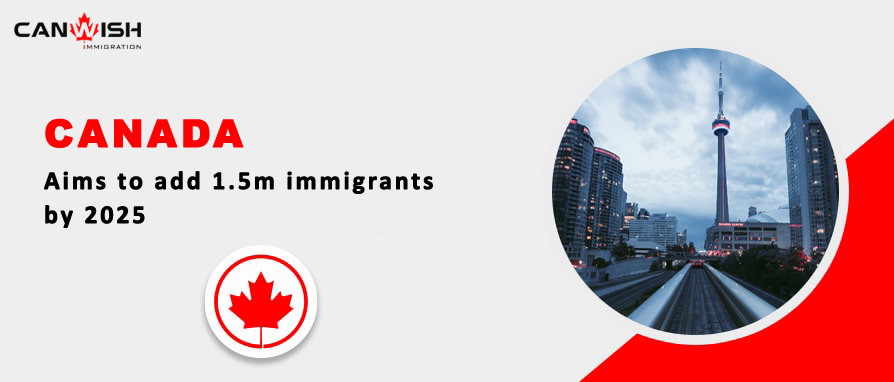Canada: Why The Country Aims To Add 1.5m Immigrants By 2025
Published: 18-01-2023

The federal government announced an aggressive plan to take in 500,000 immigrants a year by 2025, with almost 1.5 million new immigrants coming to the country over the next three years.
This plan would see Canada welcome about eight-times the number of permanent residents each year - per population - than the UK, and four-times more than its southern neighbor, the United States.
For many years, Canada has tried to attract permanent residents - landed immigrants who have the right to stay in the country indefinitely but who are not citizens - to keep the population and the economy growing. Last year, the country took in 405,000 permanent residents - the most in its entire history.
The reasons are in, some ways, about simple math. Like many western nations, Canada has an aging population with a lower birth rate. What that means is that if the country wants to grow, instead of shrink, it will have to bring in immigrants.
Immigration already accounts for practically all of the country’s labour force growth, and by 2032, it is expected to account for all of the country’s population growth too, according to a government news release.
Earlier this month, the government announced that by 2025, they hope to bring in 500,000 new immigrants a year, up about 25% from 2021 numbers.
A unique place in the world
Today, about one in four Canadians have come to the country as an immigrant, the highest among G7 nations. Compare that to the US, known colloquially as the world's melting pot, where only 14% are an immigrant.
The UK also has an immigrant population of about 14%.
Madeleine Sumption, director of the Migration Observatory at Oxford University, said these numbers do not mean the UK is behind in immigration, but rather than Canada is a bit of an "outlier".
The UK, a small island with twice the population of Canada, already has high population density, while Canada, which has a population of just over 38 million and one of the largest land masses in the world, has room to grow.
"Generally the UK has not had an objective of increasing population in the same way that Canada has done," she said.
Geoffrey Cameron, a political scientist at McMaster University, said that while many countries, like Canada, face lower birth rates and an aging population, the success of any immigration system relies on popular support.
"The limiting factor for most countries is public opinion," he said.
In the US, where the number of migrants entering the country through the southern border has reached an all-time high, there is overall a concern about having more immigrants than there are jobs.
Pre-Brexit, a wave of European Union migrants from eastern Europe moving to the UK created a backlash against migration. But over the past several years, Ms Sumption said, popular opinion for immigration has risen, in part because people believe the country has better control over who comes in than they did before.
Canada, meanwhile, has historically had very high support for immigration.
"I think part of the reason for that is that there is a degree of public trust that immigration to Canada is well-managed by the government and also is managed in a way that serves Canada's interests," Mr Cameron said.
When the government announced its aggressive targets of up to 500,000 new immigrants a year, the province of Quebec, which gets to set its own immigration limits, said it would not take in more than 50,000 a year. That would mean that Quebec, which has 23% of the country's population, would only be taking in 10% of the country's immigrants.
Quebec Premier Francois Legault said he is concerned more immigrants would weaken the French language in the province.
"Already at 50,000 it is difficult to stop the decline of French," he said.
And while it's true that Canada may have more room to grow, some places are still feeling the crunch. Major cities like Toronto and Vancouver - where about 10% of the population currently lives - have affordable housing crises.
In a poll of 1,537 Canadians conducted by Leger and the Association of Canadian Studies, three out of four said they were somewhat or very concerned about the affect the new plan would have on housing and social services. Almost half, 49%, said the targets were too high, while 31% said that they were the right number.
If you want to move to Canada, connect with us. We can help unleash your dream of moving to Canada and obtaining a PR status there!
Canwish Immigration
+91 164-501-2000 | +1 604-206-1000



